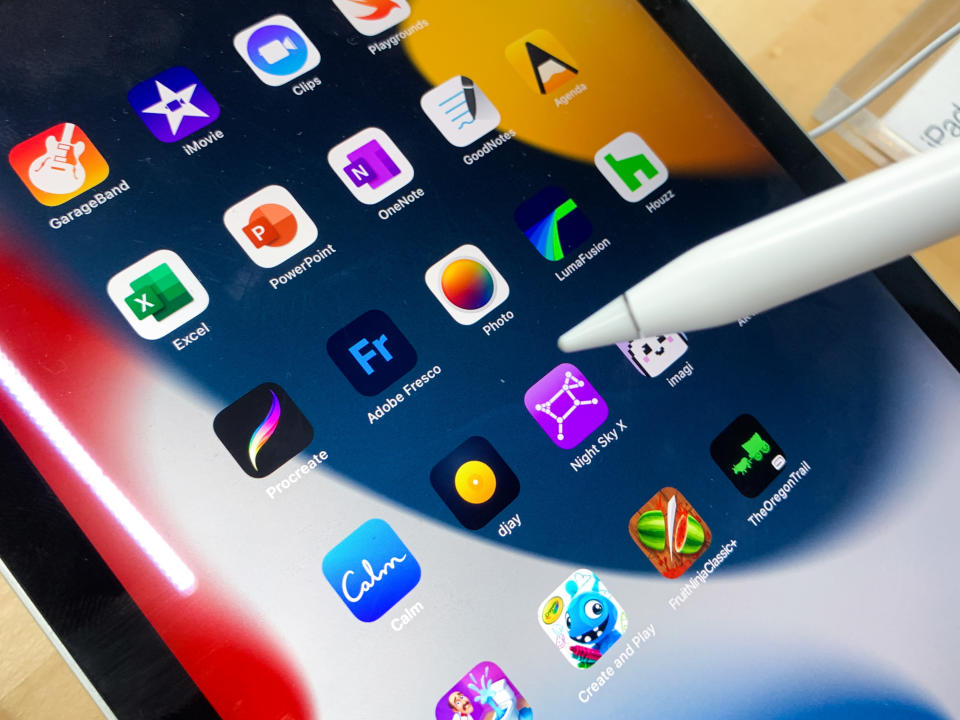Around one in four of apps on the Google Play (GOOG) have suspicious reviews while in Apple’s (AAPL) App Store this figure reached up to one in six.
The Apple App store and Google Play are both failing to prevent fake and suspicious reviews infiltrating their platforms, according to Which?.
The consumer body did a large-scale analysis that suggest that millions of consumers could be unwittingly handing over their personal data or money to apps that have cheated their way to the top of the world’s two most prominent app stores using fake reviews.
Which? initially came across apps using fake five-star reviews after a simple Google search revealed a number of businesses offering review services for app stores. Some even pay Google to appear at the top of the search results as advertised businesses, while selling fake reviews for apps on Google’s own store.
Read more: EU forces Apple to allow competitors apps on its devices, but UK makes no changes
Review broker services for apps offer bulk downloads, reviews or upvotes to help push apps up the rankings. It makes apps seem more reputable if they have been downloaded a large number of times. Meanwhile, upvotes manipulate what app store users see – reviews are automatically sorted by ‘helpful’ or ‘relevance’ so those with more upvotes will appear first, meaning developers can surface positive reviews and bury negative ones.
One fake review broker site, reviewlancer, claims to have sold nearly 53,000 reviews and exchanged more than 130,000 reviews between apps and another, AppSally, offers review manipulation for many platforms and has featured in previous Which? fake review investigations.
Rocio Concha, Which? director of policy and advocacy, said: “Apple and Google are failing to prevent fake and suspicious reviews infiltrating their app stores, leaving consumers at huge risk of being misled into downloading apps that have been boosted through unscrupulous tactics.”
For the Google Play Store, a quarter (25%) of apps in the health & fitness category and one in five (22%) apps in the games category raised all four of the red flags for suspicious reviews.
On the Apple App Store, one in six (17%) apps in the health & fitness category and one in seven (15%) apps in the games category raised four of the red flags for suspicious reviews.
Read more: Chinese tech-firms explore web3 partnerships with blockchain innovators
Another red flag is apparent bulk uploads of reviews. Which? found that there were clusters of four and five-star reviews over a few days, then very few for weeks or months before another spike. These spikes likely coincide with employing a review broker. On the well-known apps, reviews trickled in consistently, with very few big spikes in activity.
Which? also looked at review length. Five-star reviews on the dating app which showed signs of suspicious activity were less than 20 characters long on average and were significantly shorter than the app’s one or two-star reviews. For Tinder, five-star reviews were closer to 150 characters long.
The government is expected to introduce reforms to crack down on fake reviews through its Digital Markets, Competition and Consumer Bill.
Concha said: “Our latest findings illustrate why the Digital Markets, Competition and Consumer Bill is so badly needed in order to tackle fake reviews and the dominance of the tech giants, and finally make consumer protection laws fit for the digital age.”
Apple said that submitting fraudulent reviews is a violation of the Apple Developer Program License Agreement, and developers who attempt to cheat the system may have their apps removed.
The company added that it systematically detected and blocked over 94 million reviews and over 170 million ratings from publication for failing to meet moderation standards in 2021. An additional 610,000 reviews were also removed after publication based on customer concern submissions and additional human evaluation.
Which? contacted Google with its findings. It told Which? that it would not be providing a statement on the reviews research unless it was provided with all of Which?’s underlying research.
Watch: Apple rumoured to release VR headset as early as this year
Download the Yahoo Finance app, available for Apple and Android.







